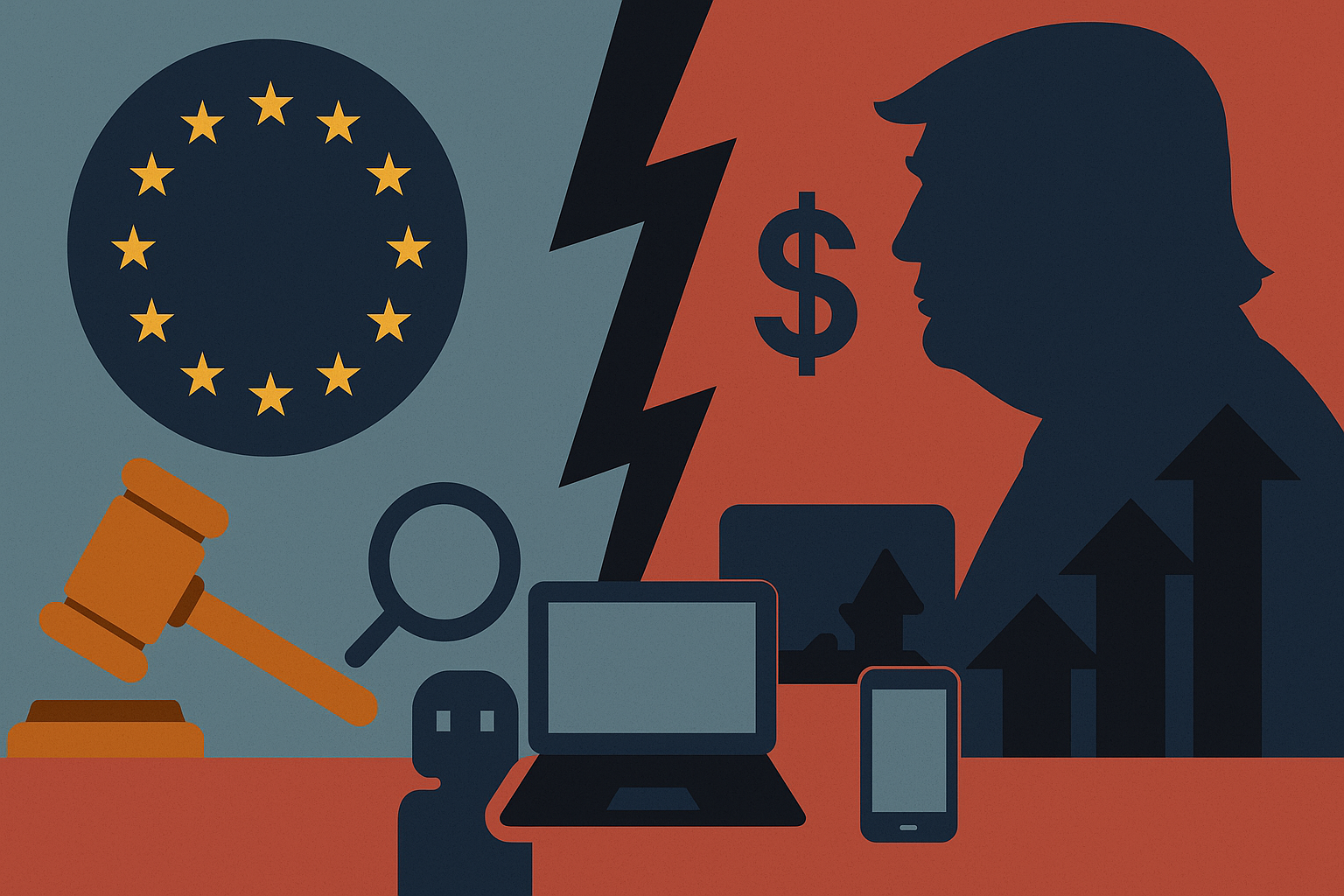The European Union must be prepared to walk away from its recently signed trade deal with the United States if President Donald Trump follows through on threats to target the bloc over its digital legislation, according to the EU’s competition chief Teresa Ribera.
Defending EU Sovereignty
Ribera, Executive Vice-President of the European Commission, urged the EU to remain “courageous” in defending its Digital Services Act (DSA) and Digital Markets Act (DMA), two landmark laws regulating Big Tech. She warned against any attempt to subordinate European policy to U.S. interests.
“We may be kind, polite, try to solve problems and discrepancies, but we cannot accept whatever [Washington demands],” Ribera told the Financial Times. “We cannot be subject to the will of a third country.”
Her remarks come just weeks after Brussels and Washington finalized the terms of a trade agreement, hailed by Commission President Ursula von der Leyen as bringing “stability and predictability” to transatlantic relations.
Trump’s Threats on Tech Regulation
Shortly after the deal was signed in July, Trump threatened to impose tariffs and export controls on countries whose rules or taxes “discriminate” against U.S. tech companies. American officials had already pressed for changes to the EU’s digital laws during trade talks.
Ribera stressed that it is Europe’s sovereign right to regulate its digital market, noting that any attempt to weaken the bloc’s rules could call the trade deal into question:
“If there is this attempt to reopen things, of course the question is: ‘OK, there is no [trade] agreement then?’ We cannot play with our values just to accommodate the concerns of others.”
Enforcement Against U.S. Tech Giants
The warning comes as Brussels advances several investigations into the practices of major U.S. tech firms, including Apple, Meta (Facebook), and Elon Musk’s X. Ribera insisted that enforcement of EU rules would not be watered down in response to U.S. pressure.
“American tech companies are making great profits out of this market, but they are subject to the same laws and regulations as any other player, regardless of where their headquarters are based,” she said.
Trade Commitments Under Scrutiny
On Thursday, Brussels began implementing its side of the new trade deal by lowering tariffs on a range of U.S. imports, including cars and industrial goods. These measures still require approval by member states and the European Parliament. However, Ribera warned that any retaliatory tariffs from Washington could force the EU to reassess its commitments.
She also cast doubt on the feasibility of parts of the agreement that involve hundreds of billions in European purchases of U.S. energy products and weapons, noting that procurement decisions typically fall to national governments or private buyers, not the Commission.
Broader Implications
Ribera’s comments highlight growing tension between the EU’s efforts to assert regulatory control over Big Tech and the U.S. administration’s push to protect its technology giants. With Europe determined to defend consumer rights and market fairness, the standoff could escalate into a broader test of transatlantic economic relations.








